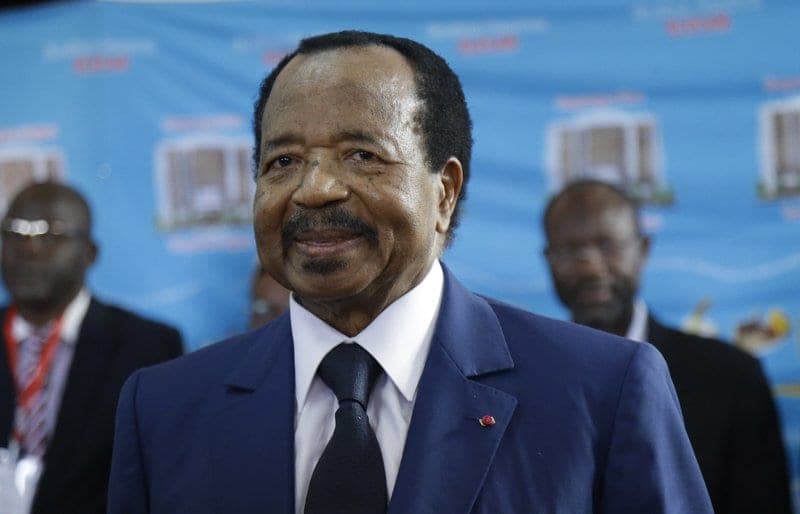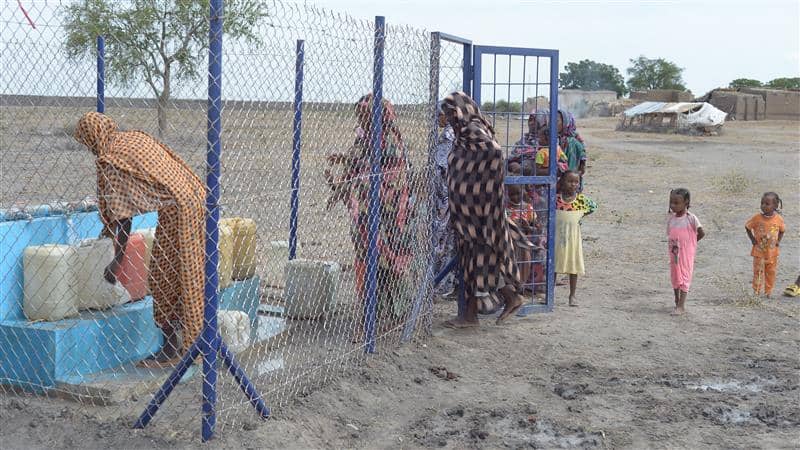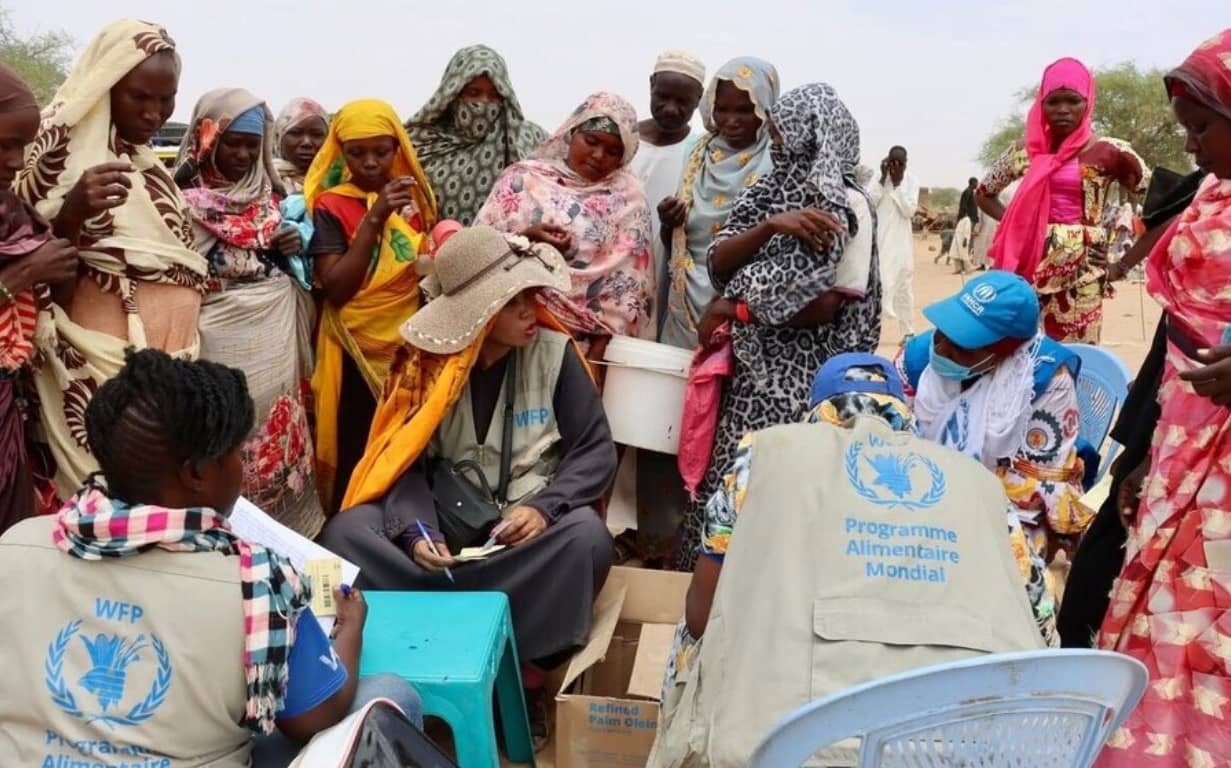YAOUNDÉ, Cameroon – With the prayers of Pope Francis, a major national dialogue to resolve the crisis that has been rocking Cameroon’s English-speaking regions began on Monday, although separatist rebels refused to attend.
Cameroon President Paul Biya announced the dialogue earlier in September when he also called on all separatists in the South East and North East English-speaking regions to surrender and be forgiven.
Nearly 3,000 people have died since 2017 in fighting in the regions over the separatist issue, including 300 defense and security forces. The violence forced more than 500,000 people from their homes.
The talks being led by Prime Minister Joseph Dion Ngute extend through Friday in the capital, Yaoundé.
On Sunday, Francis prayed during his Angelus address in St. Peter’s Square that “this dialogue may be fruitful and lead to solutions of just and lasting peace, to the benefit of all.”
The pontiff expressed his closeness to the “sufferings and hopes of the beloved Cameroonian people.”
The “Anglophone Crisis” began in 2016, when demonstrations broke out in the English-speaking North West and South West regions after there were demands to use French in their common law courts and English-modeled schools. English speakers make up around 20 percent of the country’s population and have long complained about being marginalized by the French-speaking ruling class.
After Cameroon’s security forces’ heavy-handed response – including using live ammunition on demonstrators – rebel movements arose calling for the independence of Anglophone Cameroon, saying the new country would be called Ambazonia.
Biya said the national dialogue – although primarily dealing with the Anglophone crisis – will also focus on issues of national interest such as “national unity, national integration and living together, it is obvious that it will not concern only the population of these two regions.”
As the approximately 500 delegates meet in Yaoundé for the dialogue, the Cameroon bishops of the Bamenda province, which covers the English-speaking regions of the country, have called for the root causes of the Anglophone crisis to be addressed.
In a statement submitted to the prime minister on Thursday, the Anglophone bishops laid out the case for their people.
“On October 1, 1961, two countries, namely La Republique du Cameroun (formerly colonized by France) and the ‘Southern Cameroons’ (colonized by Britain) came together to form one country-the Federal Republic of Cameroon,” the statement said.
The bishops noted that the federal nation of the original union is no more, having been dissolved in 1972.
“Southern Cameroons has disappeared and is now known as the North West and South West regions. The people of these two regions (formerly Southern Regions) feel that they have been annexed, and they now vehemently reject it, and so think that the national territory of Cameroon should revert the appellation and respect the agreement of 1961,” the bishops said.
They said the change to a unitary government led to “a feeling of domination, marginalization, subjugation, and assimilation” for the country’s English speakers.
They also accused successive administrations in Yaoundé, saying they “manipulatively, for the past years, violated the agreement and dismantled or destroyed institutions, practices, procedures, way of life or living and doing, or in general, way of governance in the former Southern Cameroons in all spheres-political, administrative, economic, social, cultural, legal, educational, etc…and have replaced them with those practiced in the territory of the former ‘Republique du Cameroun’.”
The bishops said the ongoing crisis is “a response to a state of affairs Anglophones are no longer willing to endure.”
As prerequisites for the dialogue, the Catholic leaders called for a ceasefire on both sides, the liberation of all those detained or imprisoned as a result of the crisis, as well as amnesty to be granted to Anglophones in the diaspora, so they can freely participate in the dialogue.
The bishops also called for a neutral body to mediate the talks in order to enhance trust in the process. They called for the creation of a Truth and Reconciliation Commission “where atrocities committed must be confessed, and justice and reconciliation done.”
Separatists fail to attend the dialogue over security issues
The separatists have shunned the talks, citing security concerns. On Sept. 22, the main separatist leaders abroad expressed willingness to dialogue, but posed a set of conditions the government has not been willing to accept. They called for international mediation, a meeting place outside the country, and an agenda focused on the terms of separation.
The government had made it clear that talks about separation will never be tolerated and has offered no concessions that could persuade the separatists to reconsider their stance.
Separatist leaders are still in jail, a ceasefire has not been declared, and the president’s threat to deal firmly with the “terrorists” means they can’t be assured of their security if they were to attend the meeting.
Cardinal Christian Tumi, the emeritus Archbishop of Douala, and a delegation of religious leaders met with Ngute on Sept. 18 with the results of a survey conducted in the country’s Anglophone regions.
Tumi said over 1,000 Anglophones responded to the questionnaire, and that a vast majority – 69 percent – want to secede.
This article incorporated material from the Associated Press.
Crux is dedicated to smart, wired and independent reporting on the Vatican and worldwide Catholic Church. That kind of reporting doesn’t come cheap, and we need your support. You can help Crux by giving a small amount monthly, or with a onetime gift. Please remember, Crux is a for-profit organization, so contributions are not tax-deductible.
















